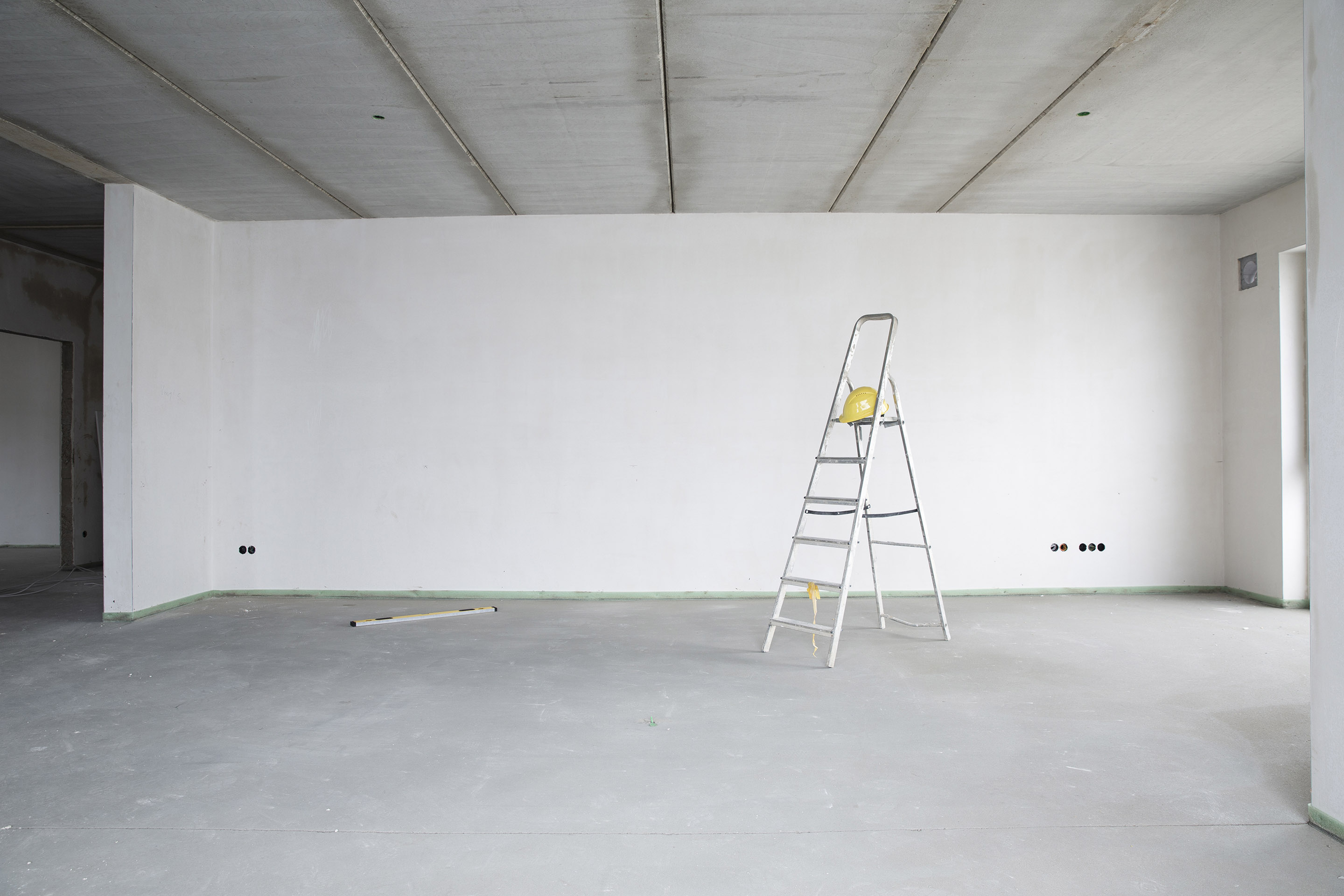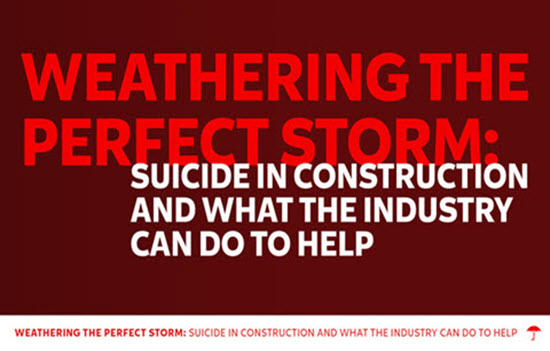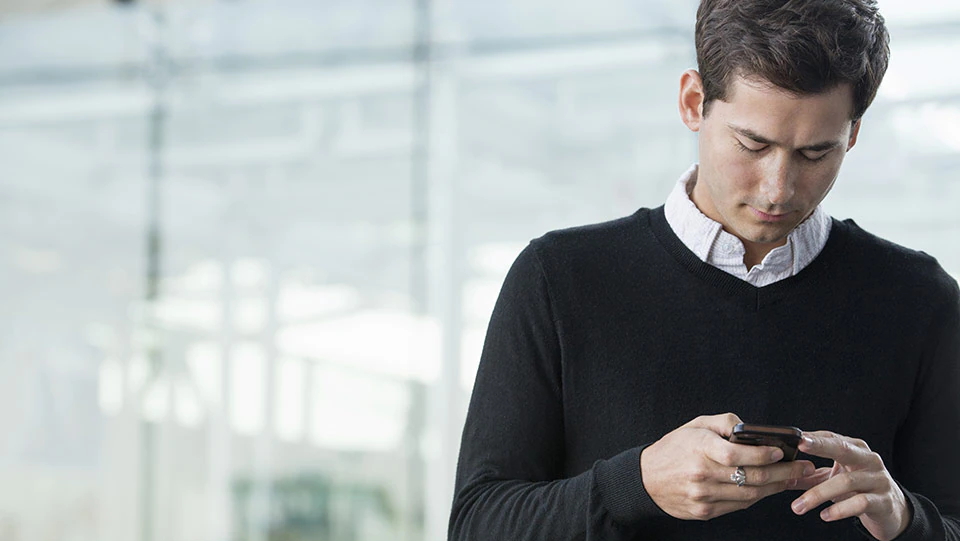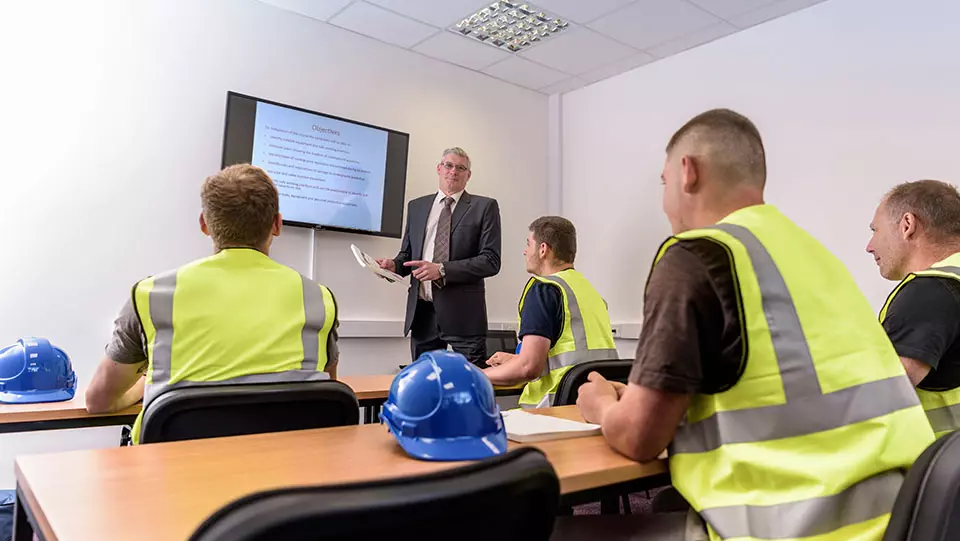Constructive Conversations About Suicide Prevention

Talking about suicide is never easy, especially in a work environment. And yet the construction industry has one of the highest rates of suicide among its workers, signaling a need for just that – more awareness and conversation about the issue.
By supporting and encouraging constructive and thoughtful conversations with their employees, businesses may help lower their risk of employees dying by suicide. And by creating an atmosphere of open dialogue about suicide and mental health in general, those who are struggling may be more likely to find the courage to seek help.
It’s OK to not be OK
Alex Ylvisaker, Corporate Safety Director at JP Cullen, discusses three seminal issues that put construction workers at higher risk of suicide. These are: the physical nature of the work; recurrent travel away from home life for extended periods; and frequent layoffs.
Alex highlights the importance of normalizing conversations about mental well-being in the workplace and shares where to access helpful resources.
(MUSIC PLAYING)
(DESCRIPTION)
Travelers Logo
TEXT: Constructive Conversations: It's OK not to be OK
(DESCRIPTION)
Text appears on a red background.
TEXT: UNDERSTAND THE ISSUES WORKERS ARE FACING
(DESCRIPTON)
Alex Ylvisaker sits in the corner of an office with framed certificates on a wall behind him.
TEXT: Alex Ylvisaker, Corporate Safety Director, JP Cullen
(SPEECH)
There's three primary issues that put construction workers at the risk of suicide. Number one is the physical nature of construction. Number two is construction oftentimes requires travel for significant periods of time away from family, friends, home life. And then number three is the frequent layoffs. Let's identify these stressors early on. Let's get some resources or some help before we get to that tipping point where we feel like there's no other option.
(DESCRIPTION)
Text appears on a red background.
TEXT: MAKE IT EASY FOR PEOPLE TO ASK FOR HELP
(SPEECH)
Somebody is dealing with a crisis and they reach out for help. We don't want them to maybe not hear back for days, weeks or months. We developed a class internally that's basically just titled simply Mental Well-Being. When you see well-respected people within your company talking about, hey, even myself, I deal with these stressors and I've had these issues in my past.
(DESCRIPTION)
Text appears on a red background.
TEXT: LET FOLKS KNOW IT'S OK NOT TO BE OK
(SPEECH)
Construction is primarily a male-dominated industry and historically, males are not good about talking about the stressors in their life. Everybody deals with stressors. Some of those little conversations from the start can really make a difference to somebody out there who may be scared to reach out to, whether it be a peer or to one of the free resources out there. The simplest thing to do is just start talking about mental well-being and it's OK to not be OK.
(DESCRIPTION)
Travelers logo in white
TEXT: To learn more, visit us at travelers.com/constructionawareness or speak with your Travelers representative.
© 2024 The Travelers Indemnity Company. All rights reserved.
The power of vulnerability
Michael Sharpe, Western Division Safety Director of Gilbane Building Company, discusses using the power of vulnerability to foster open communication in the workplace about mental health. Stress and bullying are prevalent in the construction industry and there are unique ways to effectively address these challenges.
Learn more from Michael about how making courage contagious on the job site helps promote an atmosphere of support and caring.
(MUSIC PLAYING)
(DESCRIPTION)
Travelers Logo
TEXT: Constructive Conversations: The power of vulnerability
(DESCRIPTION)
Text appears on a red background.
TEXT: ENCOURAGE PEOPLE TO SHARE THEIR CHALLENGES
(DESCRIPTION)
Michael Sharpe sits in the corner of an office with a plant, window and framed art on a wall behind him.
TEXT: Michael Sharpe, Western Division Safety Director, Gilbane Building Company
(SPEECH)
There's a lot of stress within this industry, a lot of bullying within the workforce. It's very rare to have specifically men talk about this. And it was very eye-opening when you're sitting in a group of, say, carpenters, and they're talking about how bullying and the stresses of that can really affect them. So opening up, talking about those challenges and having an understanding that, hey, you are not alone, we all have these and there are ways that they can help.
(DESCRIPTION)
Text appears on a red background.
TEXT: CREATE A CULTURE OF CARE AND COMPASSION
(SPEECH)
When you are vulnerable with people that you trust within the workspace or outside of work, it really brings a culture of care that you can't get anywhere else. On one of our projects, there was a liquor bottle found in a Porta John, and usually when that happens, there's kind of a scared straight type of mentality. We don't drink. We don't do this. You're going to be kicked off the site. But the superintendent took a different route. The route that the superintendent took was having a stand-down the following day, had the liquor bottle and stated to the group, hey, I've had challenges in the past with alcohol myself, and this is unacceptable on the construction site, but if there's an opportunity for you to come approach me and if you are having a problem, I would love to help you.
(DESCRIPTION)
Text appears on a red background.
TEXT: MAKE COURAGE CONTAGIOUS ON THE JOB SITE
(SPEECH)
When we're talking about these struggles, vulnerability can reduce shame and ultimately lead to freedom. Vulnerability is also about sharing our feelings and experiences with those that we trust. Courage is contagious. And I think the more that we can talk about impact self-worth and understand that everyone has these different challenges, they might not be the same for everybody, but when we're talking about that, it can be extremely beneficial. And if you know more about things like that, the better all are going to be and it could save a life.
(DESCRIPTION)
Travelers logo in white
TEXT: To learn more, visit us at travelers.com/constructionawareness or speak with your Travelers representative.
© 2024 The Travelers Indemnity Company. All rights reserved.
Build community within your workplace
Shaun Carvalho, the Chief Safety Officer at Shawmut Design and Construction, talks about the value of initiating conversations with employees about mental health. The goal is to create an environment that opens the dialogue around mental health in the industry.
Learn more from Shaun about how this approach can help foster community within your workplace.
[DESCRIPTION]
Logo, Travelers
Construction site
TEXT: Travelers | Constructive Conversations: Help your people be their best
TEXT: TURN UP THE VOLUME ON SUICIDE AWARENESS
[DESCRIPTION]
Shaun speaking to camera from his office
TEXT: Shaun Carvalho, Chief Safety Officer, Shawmut Design and Construction
[SPEECH]
The safety department is always looking for ways to drive some engagement out on the job site and within the organization. The idea was born to have a culture of care toolbox talk that is sent out to all of our job sites. So back in 2021, we rolled them out. In December of that year, we had a topic aimed at suicide awareness and prevention. We rolled this topic out roughly the third week of the month. Within the next week, we issued these toolbox talks to all of our job sites across the country.
[DESCRIPTION]
TEXT: LISTEN TO WHAT YOUR EMPLOYEES ARE SAYING
Shaun speaking to camera from his office
[SPEECH]
The feedback we received was that of gratitude for taking the time to really look at a difficult subject, not being afraid to talk about it and really opening up those lines of communications. So that just gave us more strength to continue on creating these topics, creating these learnings, pushing them out month after month and hoping that we can positively impact folks out on our job sites.
[DESCRIPTION]
TEXT: LET YOUR PEOPLE KNOW HOW MUCH YOU CARE
Shaun speaking to camera from his office
[SPEECH]
Just take the time to show people out on your job sites, to your crews, that you care — care about them as human beings. Create cross-functional teams within your organizations, out on your job sites. Ask the folks that might need it the most what they need and if they want to be part of a solution. Sharing in the resources will allow you to expand your network real quickly and get the word out that you’re there to treat everybody fairly and have a positive impact.
[DESCRIPTION]
TEXT: Travelers. To learn more, visit us at travelers.com/constructionawareness or speak with your Travelers representative.
[DESCRIPTION]
Logo, Travelers
Construction site
TEXT: Travelers | Constructive Conversations: It’s all about making the effort
TEXT: FIND OUT WHAT YOUR EMPLOYEES NEED FROM YOU
[DESCRIPTION]
Alyssa speaking to camera from her office
TEXT: Alyssa Kwasny, Wellness Program Director, Faith Technologies
[SPEECH]
In 2021, in response to a workplace wellness survey, our team members indicated that they wanted more support from the organization when it came to their mental well-being. Since we rolled out our culture of care, we’ve really seen individuals be more comfortable talking about mental health. And they’ve been asking for support and resources now more than ever. I think it's been really important for people to really keep it top of mind that they don’t always know what others are going through. And when it comes to the numbers, our EAP utilization has tripled.
[DESCRIPTION]
TEXT: LOOK FOR SOLUTIONS THAT WORK THE WAY YOUR EMPLOYEES WORK
Alyssa speaking to camera from her office
[SPEECH]
Team members are really looking for resources all across the board. So, it could be for themselves; it could be for their family members; or they’re looking out for their peers. And when we look at our behavioral health telemedicine offering, that has increased by about 36%. We have mental well-being trainings in-house for both leaders and employees so that they can really look at the mental well-being of themselves and kind of what signs and symptoms to look for in their peers to make sure that everybody is being their brother and sisters’ keeper and keeping out for one another.
[DESCRIPTION]
TEXT: BE THE AGENT OF CHANGE FOR YOUR COMPANY
Alyssa speaking to camera from her office
[SPEECH]
With being in construction, mental health conversations in the past have been conversations that typically weren’t had. But over the last few years, especially since we’ve rolled out our culture of care, those mental health conversations have since become normalized. And it’s part of our daily conversations. We do what we call culture of care check-ins with one another on a daily basis just to check in on one another and see where their head space is at and make sure that they’re in a good place where then we can refer them to the appropriate support or resources that they may need, if they need it.
[DESCRIPTION]
TEXT: Travelers. To learn more, visit us at travelers.com/constructionawareness or speak with your Travelers representative.
It’s about what’s in your backpack
Mike Bennett is a Vice President at Cianbro Companies and has seen the value of creating an environment that supports mental health. It’s important to remember that people bring their personal lives and problems with them to work.
Mike shares how Cianbro leaders creatively encourage employees to clear their minds before diving into work and to be intentional with their words and actions toward others.
[DESCRIPTION]
Logo, Travelers
Construction site
TEXT: Travelers | Constructive Conversations: It’s about what’s in your backpack
TEXT: ACKNOWLEDGE THE LOAD YOUR PEOPLE ARE CARRYING
[DESCRIPTION]
Mike speaking to camera from his office
TEXT: Mike Bennett, Vice President, Cianbro Companies
[SPEECH]
Fifteen years ago, we were looking for a way to connect with our workforce in regard to mental health. We thought, “You know what? We’re going to use this analogy of a backpack.” And the concept is quite simple. When you get up and get out of bed every morning and you go to work, the company is putting things in your backpack and that is called work, and we’re grateful we have it. Some days, it can be overwhelming. But somehow we find a way to persevere, only to come back the next day and have more work put in that backpack. And what we sometimes forget is every day when we get up and go to work, that backpack already has things in it, and that’s called life.
[DESCRIPTION]
TEXT: MAKE CONNECTING WITH EMPLOYEES A DAILY PRACTICE
Mike speaking to camera from his office
[SPEECH]
A last-minute risk assessment is something that’s very common in the construction industry. You wouldn’t necessarily think of that as a meditation or a mindfulness moment, but what we were able to do is take that daily activity that happens across the construction industry, turning it into a deep-breathing, mindful exercise to let go of what’s in your backpack, focus on what’s in front of you right here this moment and take in your environment so that you can identify those risks.
[DESCRIPTION]
TEXT: BE INTENTIONAL WITH YOUR WORDS AND YOUR EFFORTS
Mike speaking to camera from his office
[SPEECH]
Just take the time to listen and engage with your employees and your team members, because that in itself can pay itself back in spades. It's a little uncomfortable at first. If you want to go down that road and take the steps that we've taken, one of the things that I would advise you to do is be intentional. Be intentional with your words. Be intentional with your efforts. In addition to that is just creating the environment and the culture where it’s OK to speak up. So telling your stories, having management be there and say “It’s OK” and others to see that it’s OK to speak up, it makes all the difference.
[DESCRIPTION]
TEXT: Travelers. To learn more, visit us at travelers.com/construction awareness or speak with your Travelers representative.
Resources
- National Suicide Prevention Lifeline. Call 988 or chat with Lifeline.
- Crisis Text Line Text TALK to 741741.



